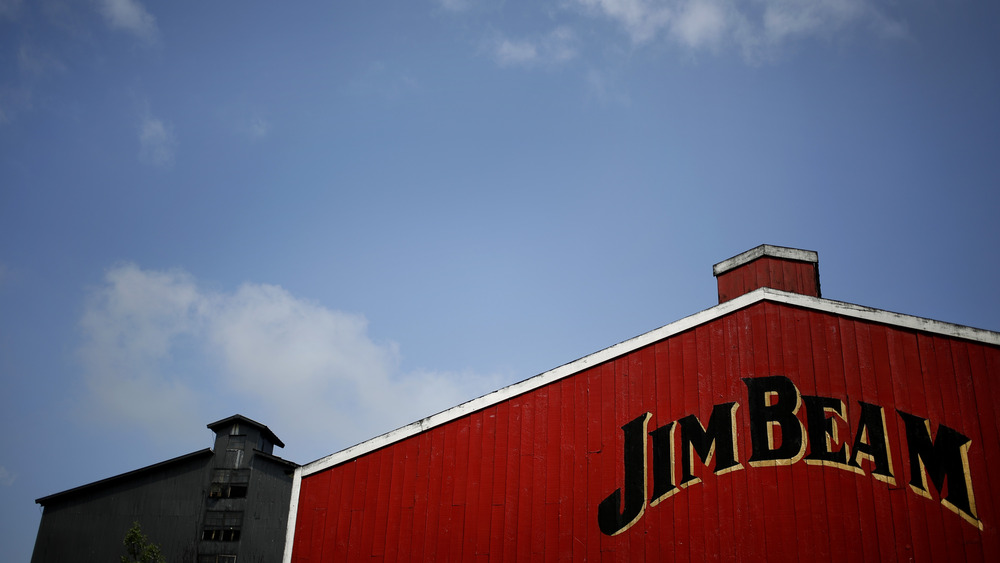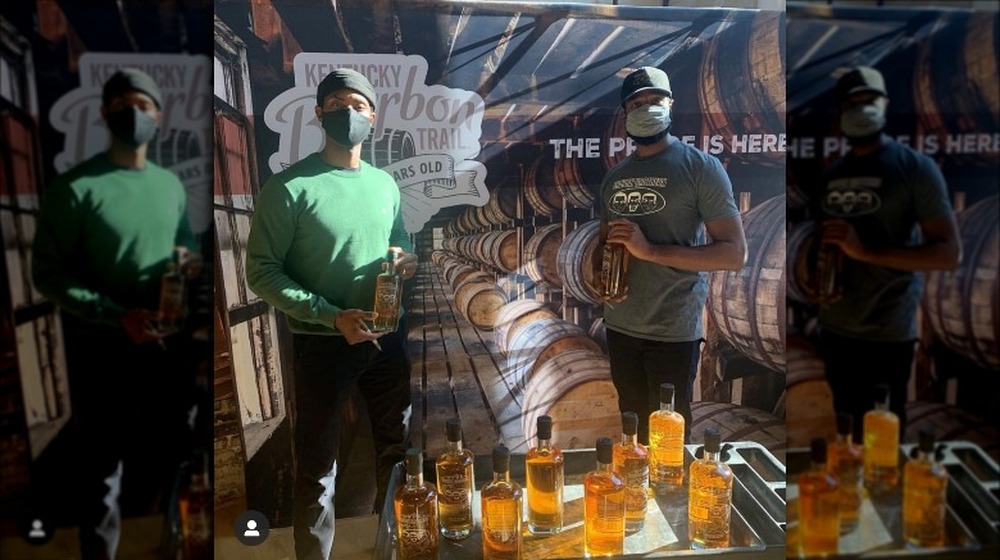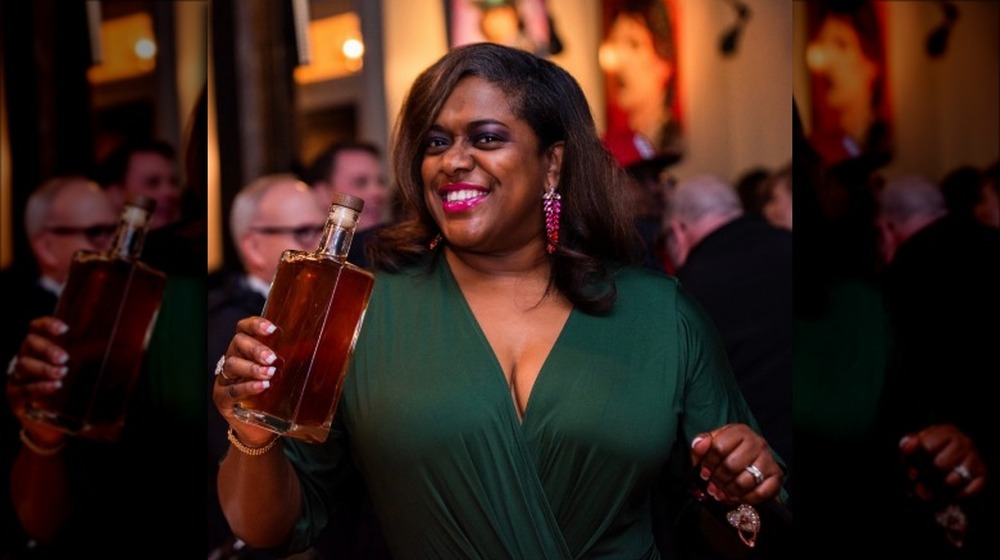The Reason Kentucky Only Has Two Black-Owned Bourbon Distilleries
How big is bourbon in Kentucky? The state and the spirit are practically synonymous. Kentucky distillers make 95 percent of the world's bourbon (via The Washington Post). Kentucky has so much bourbon aging in barrels of charred oak, there are about two barrels for every man, woman, and child who live there (via Kentucky Distillers Association).
Recent tallies of the number of Kentucky bourbon distillers, compiled by Louisville Business First and Bourbon Obsessed, put the total at more than 70. When those counts were published, just a couple of years ago, they included exactly zero that were Black-owned.
That has changed over the past year. Now there are two Black-owned bourbon makers in the state: Fresh Bourbon and Brough Brothers. Brough Brothers just started distilling in December and produces 15 gallons of whiskey a week. Fresh Bourbon, which has plans for a larger distillery, isn't making bourbon quite yet but did get official recognition from the Kentucky state Senate in 2020 as the first Black-owned distillery in the state.
A third Kentucky bourbon, Saint Cloud, is made by a Black craftsman named Ray Walker (via VinePair). Rather than owning a distillery, Walker contracts with an already-established distillery to make his limited-edition batches (via Whiskey Consensus).
Black entrepreneurs had no role models in bourbon making
The whiskey newcomers Brough Brothers and Fresh Bourbon saw a fruitful business opportunity where there wasn't one before. Bourbon sales had been in steep decline, from the 1970s to the 2000s, but in recent years sales have grown at a remarkable pace: 6 percent a year (via The New York Times). So it makes sense for Black entrepreneurs to get into the game now. But the history of bourbon in Kentucky goes back 200 years. What took so long?
To say that bourbon is a white man's drink would be to perpetuate a stereotype, but it wouldn't be far from the truth. Three-fourths of bourbon drinkers in the U.S. are white. And even though Black people make up 13 percent of the U.S. population, and they are more likely than any other demographic to prefer liquor over beer or wine, they comprise only 9 percent of bourbon drinkers (via The New York Times). As much as Black people literally don't see themselves drinking bourbon, they most definitely don't have any role models who are making the stuff. "If you have no examples in front of you and you're that chemistry student or business major in college, it's not even on your radar screen to go into distilling because you don't see yourself in it," Chris Montana, a Black craft distiller from Minnesota, told The Washington Post.
Systemic racism made it harder for Black people to start a business
The lack of role models is one reason that explains the small number of Black bourbon distillers in Kentucky. A more fundamental reason is the systemic racism in the U.S., which has meant fewer opportunities for Black people in all lines of business. Montana, the Black distiller from Minnesota, told The Washington Post that when he got his start several years ago, he was just as qualified as other up-and-coming distillers but couldn't raise nearly as much money.
Making bourbon isn't cheap, either. A distiller needs to come up with $1 million, at least, just to get started. That requires either generational wealth or access to credit, two things that historically have been denied to Black people in the U.S., according to the Center for American Progress.
Sean and Tia Edwards, the founders of Fresh Bourbon – one of the two Black-owned distilleries in Kentucky – do have a generational tie to the liquor business. Sean's grandfather and uncle were bootleggers. Selling liquor illegally was the only opportunity they had in the business at that time, Tia Edwards said. "I feel like what we're doing is paving the way for other entrepreneurs coming up," she told The Washington Post. "We come from humble beginnings, our families didn't have hundreds of thousands of dollars, we had to work hard for what we have."


